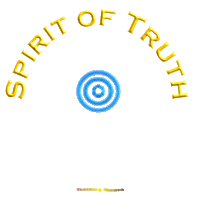The Urantia Papers (An
introduction by Byron Belitsos)
A first glance through the table of contents of
The Urantia Book can be shocking: It lists over fifty names
and types of celestial personalities, few of whom have been heard
of on the planet heretofore. The topics covered are all-embracing
in scope. Its literary style is elevated and complex—often rather
advanced. In addition, the jacket of this 2,097-page book
describes it as an epochal revelation to our planet, which it
purports is called "Urantia" Without a doubt, this text offers a
formidable challenge to anyone approaching it for the first time!
The Urantia Book was authored and presented by celestial
personalities and given to our world through a method that is not
wholly understood. Popular lore recounts a twenty-year process in
the 1920s and 30s in Chicago of direct interaction between a
superhuman commission of celestial personalities and a "contact
commission" of six humans. In addition, a group of several hundred
people known as the Forum, which met once a week during these
years in Chicago, was indirectly involved in the revelatory
process, feeding (through the human contact commissioners) not
only hundreds of questions to the revelators but even comments on
early drafts of the papers. The finished version, a massive tome,
was first published in 1955, and more than 500,000 copies are now
in print.
AN OVERVIEW OF THE URANTIA TEXT
The first thing one notices when perusing this text is a huge
volume of 196 chapters (actually known as "papers") that is
divided into four sections:
I.
The Central and Superuniverses,
which presents the infinitely loving and merciful nature of the
Universal Father and Eternal Mother-Son, the nature and activities
of the Eternal Trinity and other high universe personalities, and
the extent and structure of the far-flung cosmic domains of
material creation.
II.
The Local Universe, which
details the nature and structure of the "local" sector of our
galaxy containing ten million inhabited planets, including its
administration and history.
III.
The History of Urantia, which
narrates the origin of our solar system, a chronological account
of the history of the earth ("Urantia"), and the evolution of life
on the planet, including a spiritual history of humankind.
IV.
The Life and Teachings of Jesus,
which contains a 700-page account of the life and teachings of
Jesus—sometimes day-by-day and hour by hour—including a narration
of the so-called "lost years" of Jesus’ childhood, adolescence,
and young adulthood, as well as an extensive and detailed account
of his public ministry. The background data for this presentation
is based chiefly on records supplied by the guardian angel who
accompanied the Apostle Andrew.
This fourth section of the book is solidly rooted in the New
Testament story. In one of five papers presented for a
consultative panel on The Urantia Book held at the American
Academy of Religion meeting in 1986, Dr. Meredith Sprunger wrote
the following about the Jesus Papers:
"This superb presentation of the life of Jesus brings life to the
sketchy New Testament picture and with it a new authenticity. It
has a universal appeal even when it is viewed only as a historical
novel for it is unsurpassed in theistic philosophical
reasonableness, spiritual insight, and personality appeal. This
life of Jesus not only fills in the "hidden years" from twelve to
thirty but The Urantia Book gives a picture of his pre-incarnation
and post-incarnation experience. It is basically acceptable to all
religions, emphasizing the religion of Jesus which is unifying
rather than the religion about Jesus which tend to be divisive."



 ►
►![]()
![]()
![]()
![]()
![]()
![]()